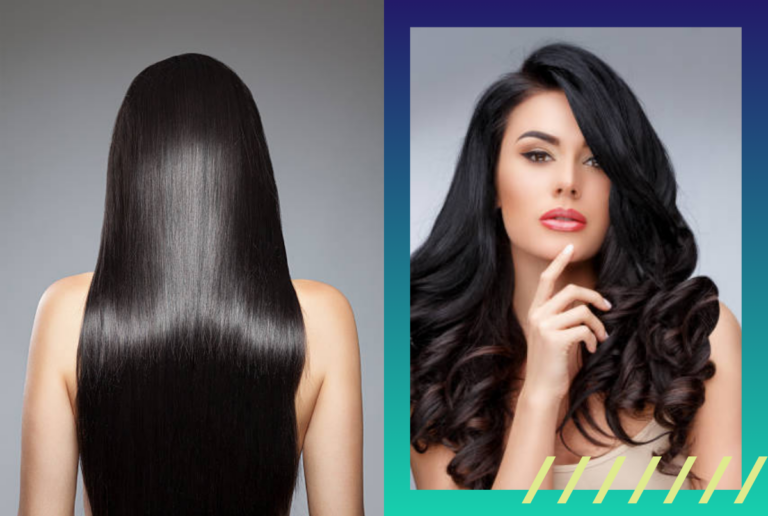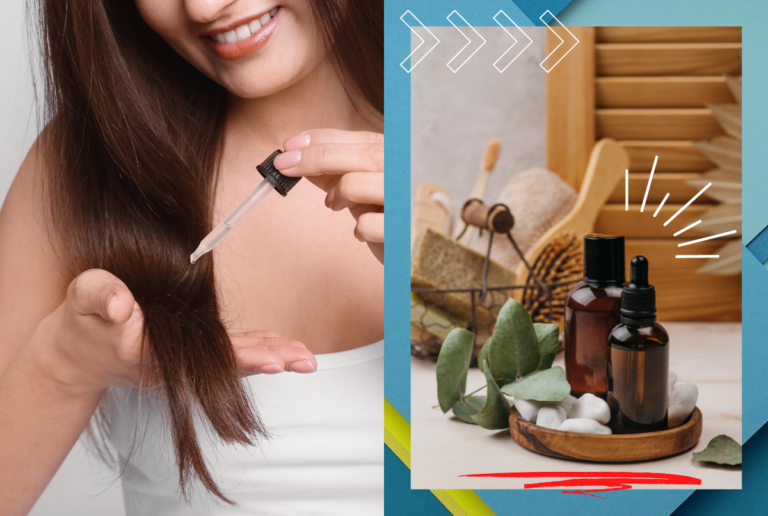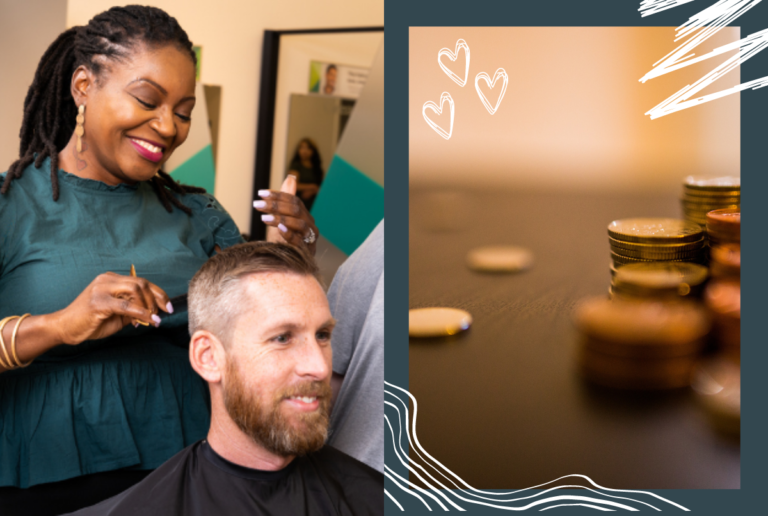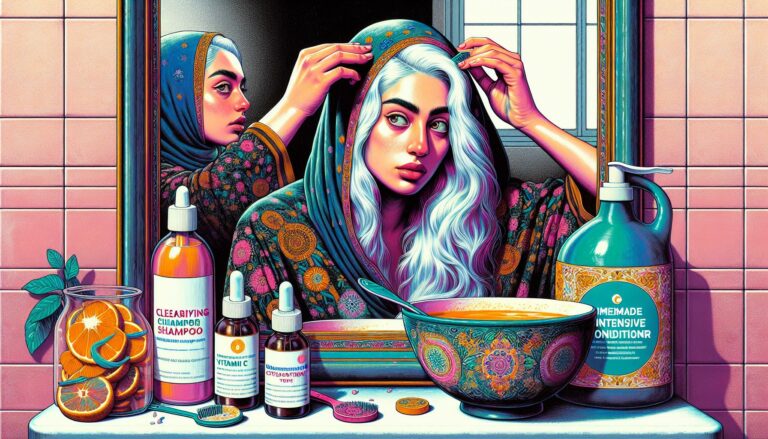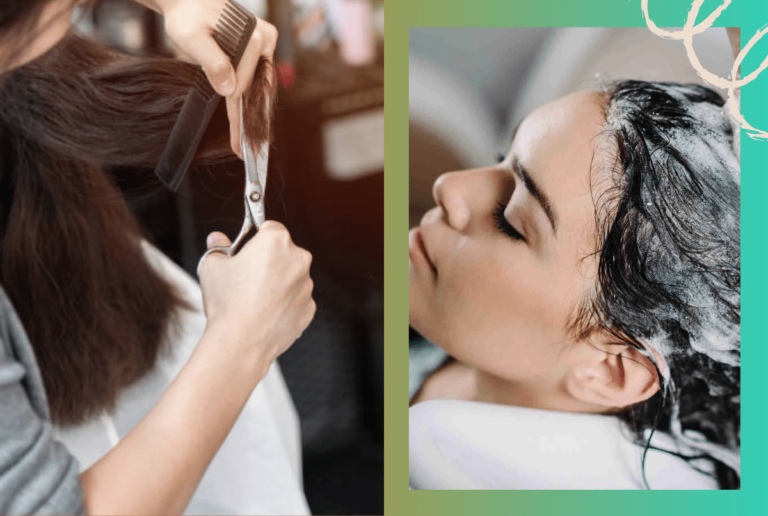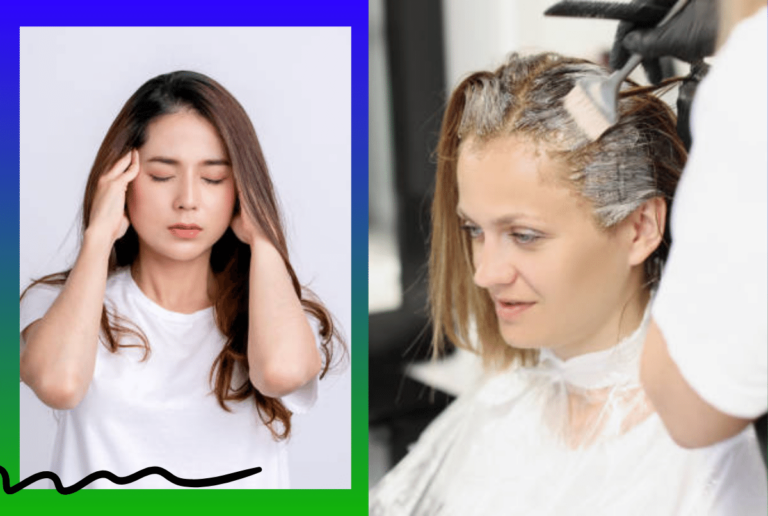Why Is My Scalp Peeling Off In Chunks (Large Flakes)?
Not only are large flakes falling off your scalp annoying, but they could also be a sign of a more pressing problem with your scalp’s health.

Peeling or flaking skin conditions are pretty common and can be treated easily. And it’s not always dandruff, even though dandruff is the leading cause of flaking scalp. Ailments like scalp psoriasis are somewhat more difficult to manage, owing to their root cause.
Luckily, with proper care and the most minute lifestyle changes, you can mitigate the problems these conditions cause. The answers are listed below, so scroll away!
Reasons For Flaky Scalp
1. Dry Scalp
If your scalp is excessively dry, there’s a chance of it turning flaky and falling off. The most prominent sign of this is stiffness in your scalp, as well as dryness in your hair. As for what causes it, it can occur as a reaction to certain hair products, weather changes, or excessive washing.
To remedy this, all you need to do is moisturize your scalp with a hydrating shampoo and cut down on the application of strong chemicals like dyes. You can also stop using hair products that contain sulfates to control the damage to your scalp.
Another good practice would be to brush a few drops of oil through your hair to moisturize it properly. Pick an essential oil and massage it into your scalp for the best results.
2. Scalp Psoriasis
Scalp psoriasis is an autoimmune disorder that results in flaky, itchy skin. This condition is, unfortunately, incurable and the victim has to use certain measures to mitigate the irritation that accompanies it. Psoriasis may cause hair loss and damage, making it more pressing than some of the other ailments on this list.
The source of the disorder has yet to be identified and though it isn’t transmissible, it accompanies the victim for the rest of their life. However, there are a few elements that can potentially incite the disease. These are:
- Medications
- Allergies
- Stress
- Unbalanced diet
- Infections
- Environmental exposure
To know if you have scalp psoriasis, you should keep an eye out for reddish patches, flaky skin, irritation, red bumps, and burning sensations on your scalp. You may experience some or all of the following symptoms when dealing with scalp psoriasis.
The best thing you can do about scalp psoriasis is to use medicated shampoos and to apply aloe vera gel. These won’t outright cure the disease but they will provide you relief from irritation and redness.
3. Dandruff
Dandruff is one of the most common scalp conditions and the one with the widest variety of solutions. Owing to its commonness, the cause and treatments of dandruff have been identified. It is caused by a fungus called Malassezia.
When you have oily skin or your scalp has a buildup of foreign substances on it, you will likely develop the condition. It may also be a result of your body reacting to certain hair products, causing the formation of dandruff flakes on your scalp. This may be a sign of a different disease altogether, such as eczema and psoriasis.
Fortunately, you can treat dandruff in both natural and medicated ways. You can opt for an anti-dandruff shampoo made specifically for your hair type. Or, simply opt for over-the-counter medications and see results within days.
4. Seborrheic Dermatitis
Much like psoriasis, seborrheic dermatitis is an incurable scalp condition that causes red, scaly patches. And similar to dandruff, it’s a result of your scalp producing too much oil, causing the hair follicles to get clogged. When disturbed, the skin around it comes off in flakes and may cause bleeding as well.
The difference between psoriasis and seborrheic dermatitis is the scope of the problem. If the red, scaly skin stretches beyond the scalp, it may be psoriasis. If not, then you may be dealing with seborrheic dermatitis instead.
Seborrheic dermatitis is a chronic condition that can only be mitigated by using coal tar medicated shampoo and requires few lifestyle changes to be managed. Like dandruff, you can use homemade remedies to limit the irritation, such as apple cider vinegar.
Though incurable, the chances of seborrheic dermatitis can be reduced by adopting a few simple lifestyle changes. These preventive measures include:
- Ensuring clean scalp and hair
- Rinsing hair products completely
- Maintaining a balanced diet
- Avoiding caps
5. Fungal Infection
Thick and scaly patches resulting from fungal infection may cause your lymph nodes to swell and develop crusty sores. Caused by a fungus called tinea capitis, the condition is also known as ‘ringworm’ due to the ring-like sores formed on the skin.
Extremely contagious in nature, fungal infections are common among children and can be transmitted from animals. It spreads via direct contact in most cases and even by touching surfaces recently touched by an infected being. In severe cases, the crusty sores burst and begin oozing fluid, causing spread of the infection. Because of its highly transmissible nature, ringworm must be treated with the utmost care.
Not only can it spread to other people, but a fungal infection may also affect other parts of the body as well. Thus, it becomes of the utmost importance for you to stop scratching at the affected areas. Resisting the urge will cause fewer flakes to fall out of your scalp, preventing the fungus from spreading to other parts of the body.
If advanced sufficiently, ringworm can cause pus-filled swellings called kerions that are painful and can cause permanent hair loss. To combat this, you may use over-the-counter antifungal shampoos, which will stop inflammation and kill the fungi dead. If needed, you can also talk to wellness professionals for appropriate treatments.
6. Product Buildup
If rinsed incorrectly, your scalp may have a nasty build up of leftover chemicals after shampooing or using hair products. Should it mix with sweat, sebum, or dead skin cells, the product buildup may cause the skin to turn flaky and peel off when scratched. The accumulated product might cause dandruff and lead to peeling of the skin when you scratch the itchy patches.
Product buildup shares symptoms with some of the other ailments on this list, such as psoriasis. Fortunately, unlike psoriasis or seborrheic dermatitis, scalp buildup can be treated at home. To do so, you should:
- Brush and wash your hair regularly
- Use a scalp exfoliator
- Use a medicated shampoo
A natural scalp exfoliator can be made at home by mixing aspirin with warm water. Aspirin contains salicylic acid, which acts as the exfoliating agent in the mixture. You can also get a scalp exfoliator, if a readymade product suits your fancy.
If none of these treatment options work, you may want to have your condition diagnosed. There is a chance that these symptoms signal a more serious condition that must be treated immediately.
7. Sunburn
Summer brings with it the harsh rays of the sun, along with all the UV rays it projects. When applying sunscreen, it’s likely that you don’t think of the possibility of a sunburned scalp. But, it is known to happen and it can lead to dry, flaky skin.
Shampoos containing harsh chemicals can exacerbate the problem and so, it would be wise to steer clear of those. Try switching to the ones that contain aloe vera, apply it before sleeping and rinse it off with warm water after waking up. Alternatively, you may use shampoos that specialize in post-sunburn recovery, which can soothe your skin quite effectively.
It’s unwise to ignore the possibility of a sunburn. Severe sunburns can cause blisters on your skin that won’t go away on their own. These blisters will cause a discharge after a while and may lead to an infection as well. Seek medical treatment from a dermatologist if this occurs.
There is another possibility that makes it all the more important to protect your scalp from the sun: skin cancer. Your scalp is the most exposed to the harsh UV rays, making it the most susceptible to developing different kinds of skin cancer, like Melanoma or basal cell carcinoma.
Preventing sunburn is simple: put on a hat or apply sunscreen to the exposed parts of your hair. It’s a minor change in your lifestyle that will save you from a whole world of pain.
Scalp Scabs
As a result of the disorders mentioned above, your scalp may develop scabs that are gray, yellow, red, or brown in color. This happens if the natural oils on your scalp happen to be damaged by external factors, resulting in itchy scabs that are crusty in nature.
1. Causes
In addition to the scalp disorders listed earlier, there are other factors that scalp scabs may point towards. These include:
A. Eosinophilic folliculitis
Seen in people with compromised immune systems, the scabs formed in their scalp are itchy and filled with pus. The pus-filled scabs are red in color and are not limited to the head either. They may be observed in other parts of the body as well.
B. Seborrheic Eczema
Like dandruff, seborrheic eczema is a common scalp condition that results in flaky patches and red skin. It’s mostly observed on the oily areas of the body, such as the face, chest, ears, and eyelids. The scabs resulting from seborrheic eczema are thick, red, and itchy.
C. Lichen Planopilaris
Lichen Planopilaris, abbreviated as LPP, is an inflammatory reaction of the scalp that induces redness of the skin around the follicles, bald patches along with painful, burning itch. The scabs resulting from this condition are often small and red, which can cause scarring and may lead to permanent hair loss.
D. Hard Water
Hard water can be attributed as the reason for scalp scabs. The minerals in hard water can cause a reaction in your scalp, resulting in itchy, reddened skin. Consider having your water supply checked for the dissolved solids present in it. If its TDS is too high, you may want to install a filter in your water supply pipes.
E. Poor Diet
Without sufficient protein and nutrition, your scalp health will suffer and may dry out over time. An unbalanced diet is the source for many scalp-related issues, such as psoriasis and dry scalp. Increments in your protein intake will go a long way to restore your scalp health.
2. Symptoms
The crusty yellow raised areas on your scalp are a telltale sign of scabs, but there are other symptoms as well. These areas may clump together to form larger scabs and result in symptoms like:
- Blisters and sores
- Foul odor
- Baldness
- Itchy, burning skin
- Dried blood
Should you face any of these symptoms, refrain from scratching your skin until it heals completely. Scabs originate from your body’s attempt to heal an injured area and scratching it can disrupt the healing process. Constant scratching may even lead to permanent hair loss and bald patches.
3. Treatment
Since scabs happen as a result of the body healing itself, you can simply opt to leave them be for a couple of weeks. To accelerate the process, you can use non-prescription medicine and shampoos, along with homemade remedies. Some examples are:
- Hair serum with a urea and ceramide base
- Warm coconut, jojoba, or tea tree oil massage
- Apple cider vinegar
- Oatmeal
- Aloe vera gel
These treatments are not alternatives to proper medical care, so if your symptoms are bad, you should contact a doctor immediately.
FAQs
How do I distinguish between dandruff and scalp psoriasis?
The first thing to know about psoriasis is that it is more severe and requires immediate attention. It ends up forming plaques and blisters on your scalp with a potential of an infection in the resulting wound.
The ways to treat scalp psoriasis are extensive, long-term, and require the guidance of a qualified physician, as the disease is chronic. Certain lifestyle changes are necessary for the patient to prevent psoriasis flares and reduce their impact.
Contrast this with dandruff, where mildly medicated shampoos are often enough to reduce or eliminate the condition entirely. The skin flakes are small and dry, but cause no bleeding or injuries to form.
What foods trigger seborrheic dermatitis?
There has been some debate in the scientific community about the link between foods and seborrheic dermatitis. Certain studies concluded that processed food results in more cases of the scalp disorder, while others argued that there was no correlation between food and the disorder.
Preservatives may be the culprit to blame here, being the common factor among these foods, which include:
a. Cheese
b. Bread
c. Cookies
d. Salted chips
e. Tofu
What deficiency causes scalp psoriasis?
Scalp psoriasis is a result of your immune system misidentifying the cells in your body and attacking it. An autoimmune disease rarely has a cure and has to be managed by medical help or lifestyle changes.
To help your immune system hold up against potential psoriasis flares, foods rich in vitamin D and B12 will reduce the plaque formation on your skin and keep them from growing worse.
Fatty fish and fish liver oils are the best source of vitamin D and may have a significant impact on scalp psoriasis. You can also benefit from increasing the intake of leafy vegetables, fruits with antioxidants, plant-based proteins, and legumes. These can relieve inflammation that is caused by scalp psoriasis.
Are seborrheic dermatitis and seborrheic eczema the same?
To answer concisely, no. The term dermatitis is a general term that may encompass eczema, referring to the inflammation of the skin. On the other hand, eczema is a skin condition that occurs when the skin is inflamed, dry, and itchy.
A fungal infection is the cause of dermatitis, while eczema’s root cause is either a hypersensitive skin or an allergic reaction. The treatment approaches for both are significantly different from one another, as dermatitis is treated with antifungal medication and eczema involves the usage of antiallergens.
Conclusion
The ailments that result in skin forming flakes and coming off in chunks are usually not a cause for worry. Most of these are a product of dry scalp and with a proper hair care routine and lifestyle changes, you can treat or outright prevent them from advancing into a problematic stage.
Moreover, you can treat the most common scalp disorders at home without requiring medical aid. That said, you should not ignore the symptoms if they persist for a long time. An itchy scalp can potentially be a sign of a more serious disorder and, in extreme cases, may point to skin cancer.
All in all, the sooner you identify the root cause of the problem, the better chances you have of coming up with a treatment plan and eliminating it entirely. Over time, you will be able to use the solutions to your advantage and eliminate the flakiness of your scalp entirely.

